
The latest.
Topic
- 1031 Exchange 1
- 401k 1
- Accounting 1
- Accredited Investors 3
- Active Real Estate Investment 5
- Alpha 2
- Alternative Investements 10
- Alternative Investment 1
- Alternative Investment Fund 2
- Alternative Investments 50
- Altigo 1
- Alto IRA 1
- Artificial Intelligence 1
- Auditors 1
- Background Checks 1
- Banking Collapse 1
- Bankruptcy 1
- Bar 1
- Bitcoin 1
- Blue Vault 1
- Bonds 7
- Bridge Loan 8
- Broker‑Dealer Standards 1
- CAASA 1
- CAIA 5
- CMBS 1
- Canopy Phoenix 1
- Capital Gains 1
- Commercial Real Estate 25
- Concreit 1
- Correlation 3
- Counterparties 1
- Credit Crunch 1
- CrowdStreet 2
- Cryptocurrency 1
- Debt Cliff 1
- Debt Structure 1
- Digital Assets 1
- Diversification 2
- Due Diligence 25
- Due Diligence Checklist 1
- Edge 2
- Education 14
- Emerging Managers 1
- Equity 3
- Ethereum 1
- Family Office 2
- Fed 1
- Finance 1
- Fixed Income 9
Access Our Exclusive Investment Insights.

Regulation Best Interest (Reg BI): What Accredited Investors Need to Know
Regulation Best Interest (Reg BI) protects accredited investors by raising the bar for disclosures, due diligence, and conflicts management. This guide breaks down what to expect from brokers—and how to evaluate private placements with clarity and confidence.

Third-Party Fund Oversight: Why Investors Need Administrators and Auditors
Independent oversight is one of the strongest safeguards investors have. Learn how third‑party fund administrators and auditors protect your capital through transparent reporting, accurate valuations, and unbiased verification.
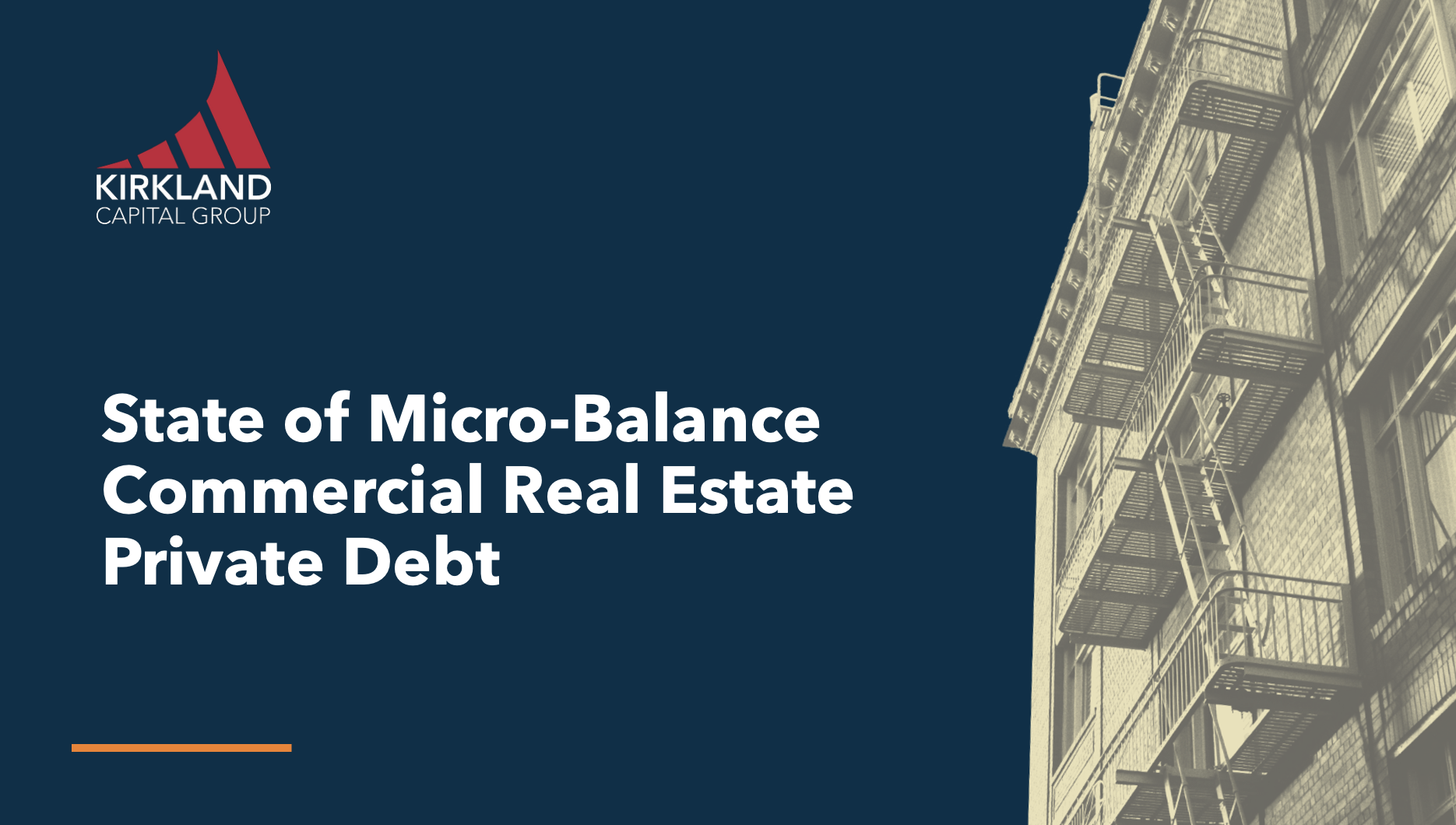
State of Micro-Balance Commercial Real Estate (CRE) Private Debt: 2025 Recap and 2026 Outlook for Investors
A niche often ignored by banks is generating 8–10%+ secured yields for accredited investors. This report breaks down 2025 results, the 2026 outlook, and the strongest opportunities in micro‑balance CRE private debt—from rate cuts and refinancing tailwinds to sector‑by‑sector performance.
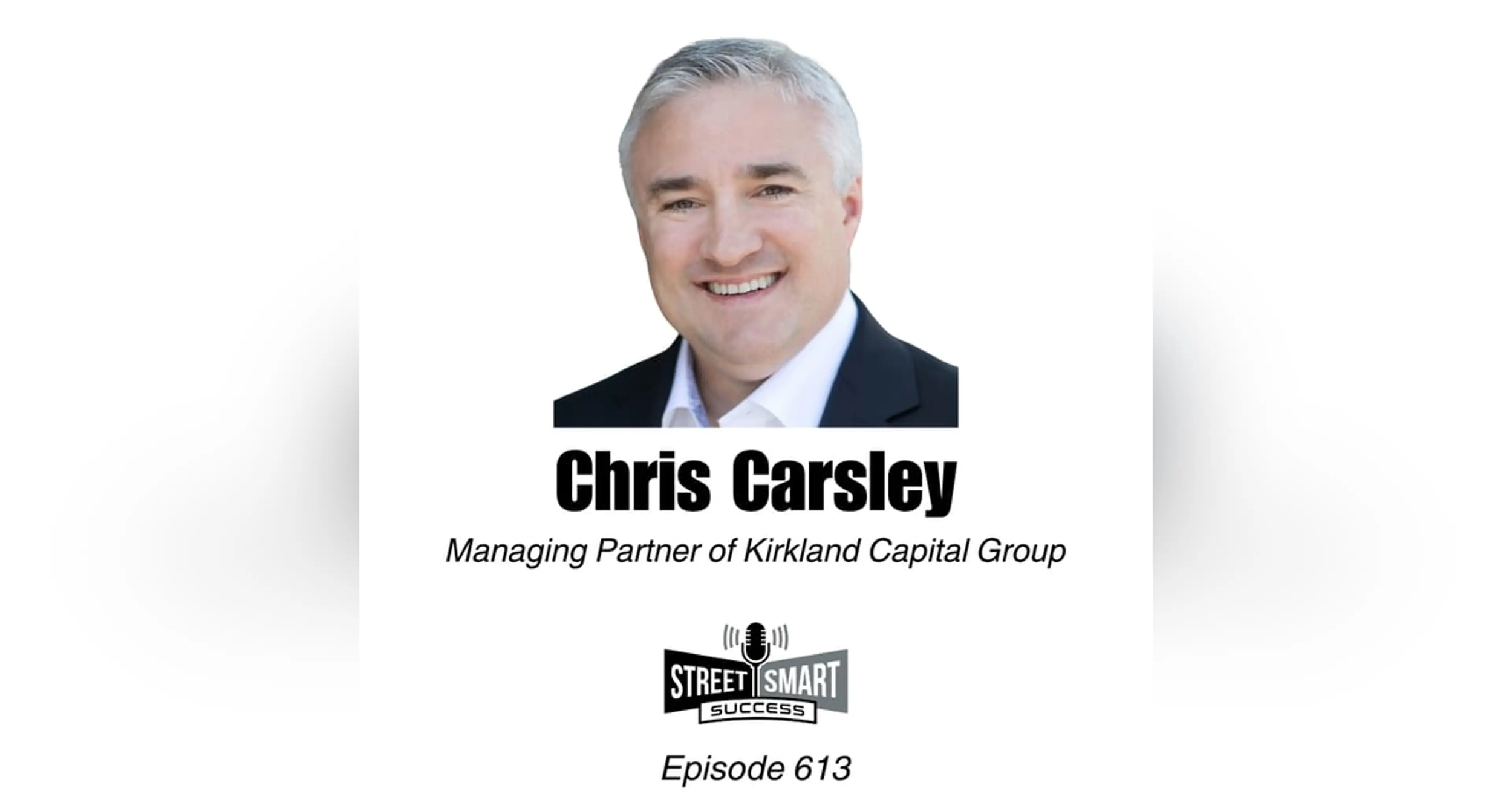
Investing in Private Debt in Real Estate: Insights from Kirkland Capital Group
If you're looking for stable income, capital preservation, and uncorrelated returns, private real estate debt may be the solution your portfolio needs. In a market where traditional income strategies are volatile and equity valuations feel stretched, this asset class offers a compelling alternative.
One such opportunity lies in private debt—specifically, private debt in real estate, where investors lend directly to property owners and developers in exchange for interest income backed by real assets.

Real Estate Bridge Loans 101 for Investors: What Passive Investors Need to Know
Learn how passive investors can leverage real estate bridge loans to earn 8–12% annual returns. Discover key benefits, risks, and strategies in this article.

Private Debt 101: What It Is and Why It Matters in Today’s Market
Private debt, also commonly called private credit, has emerged as a growing component of the global financial landscape. As traditional banking systems and public debt markets face challenges, private debt has stepped in to fill funding gaps, offering unique opportunities for both borrowers and investors. With the private debt market nearing $2 trillion in assets under management (AUM) and projected to grow further, understanding this asset class is essential for modern investors. This article will break down what private debt is, its types, its role in portfolios, and why it’s gaining traction today.
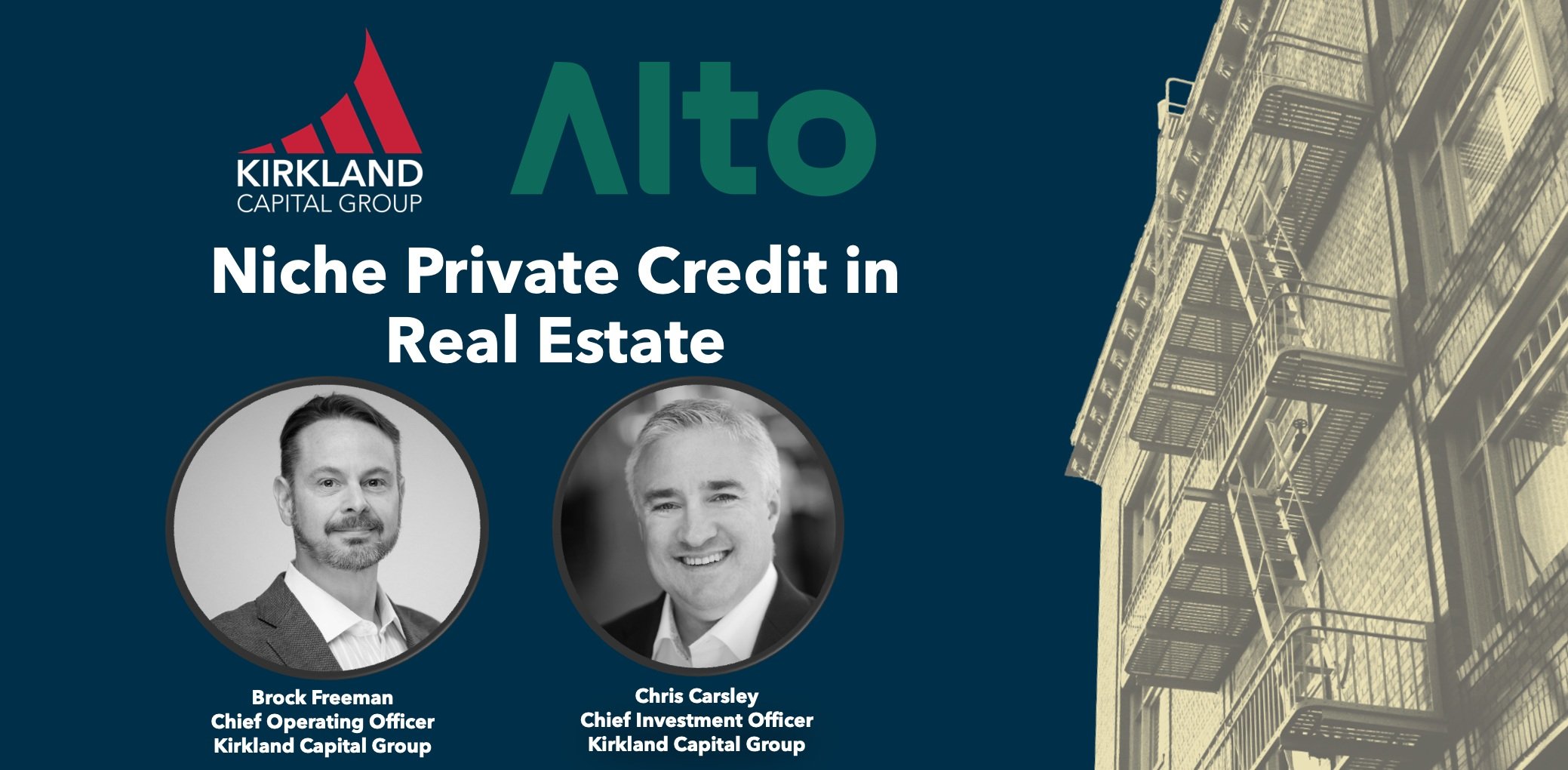
Discovering Opportunity in Micro-Balance Commercial Real Estate Debt Investing
Imagine finding an investment opportunity that others overlook—a niche distinct enough that it flies under the radar of Wall Street and offers stability amid market volatility. At Kirkland Capital Group, we believe such opportunities are valuable and offer investors the ability to generate excess returns. Our recent webinar, hosted by Alto IRA, highlighted our unique approach and insights into micro-balance commercial real estate, enabling our investors to act as the bank for commercial properties and earn steady returns. This article serves as a summary of the key points from the webinar.

Forget Traditional Loans: Private Debt Is Winning | Passive Pockets Podcast
Dive deep into the world of private debt with Paul Shannon and our very own Chief Investment Officer, Chris Carsley as he guested on the Passive Pockets Podcast.
This must-see episode uncovers the hidden potential of private debt as a profitable investment opportunity, enabled by the transformative Dodd-Frank ruling of 2010. Discover how this asset class provides diversification and consistent returns, even during volatile markets. Chris breaks down everything from various private debt types and their historical roots to actionable investment strategies—complete with real-world examples and insider tips on mitigating risks. Get insider knowledge on the operational due diligence aspects that every savvy investor needs to know. Discover why private debt could be the game changer your investment portfolio needs and why it is attracting smart investors globally. Whether you are looking to enhance your returns or seeking to diversify your investment strategy, this episode is packed with invaluable insights and expert advice. Watch the full video now to transform your investment approach and unlock consistent, reliable returns with private debt!

Schedule K-1 and Form 1099. What, Why, Who, and How?
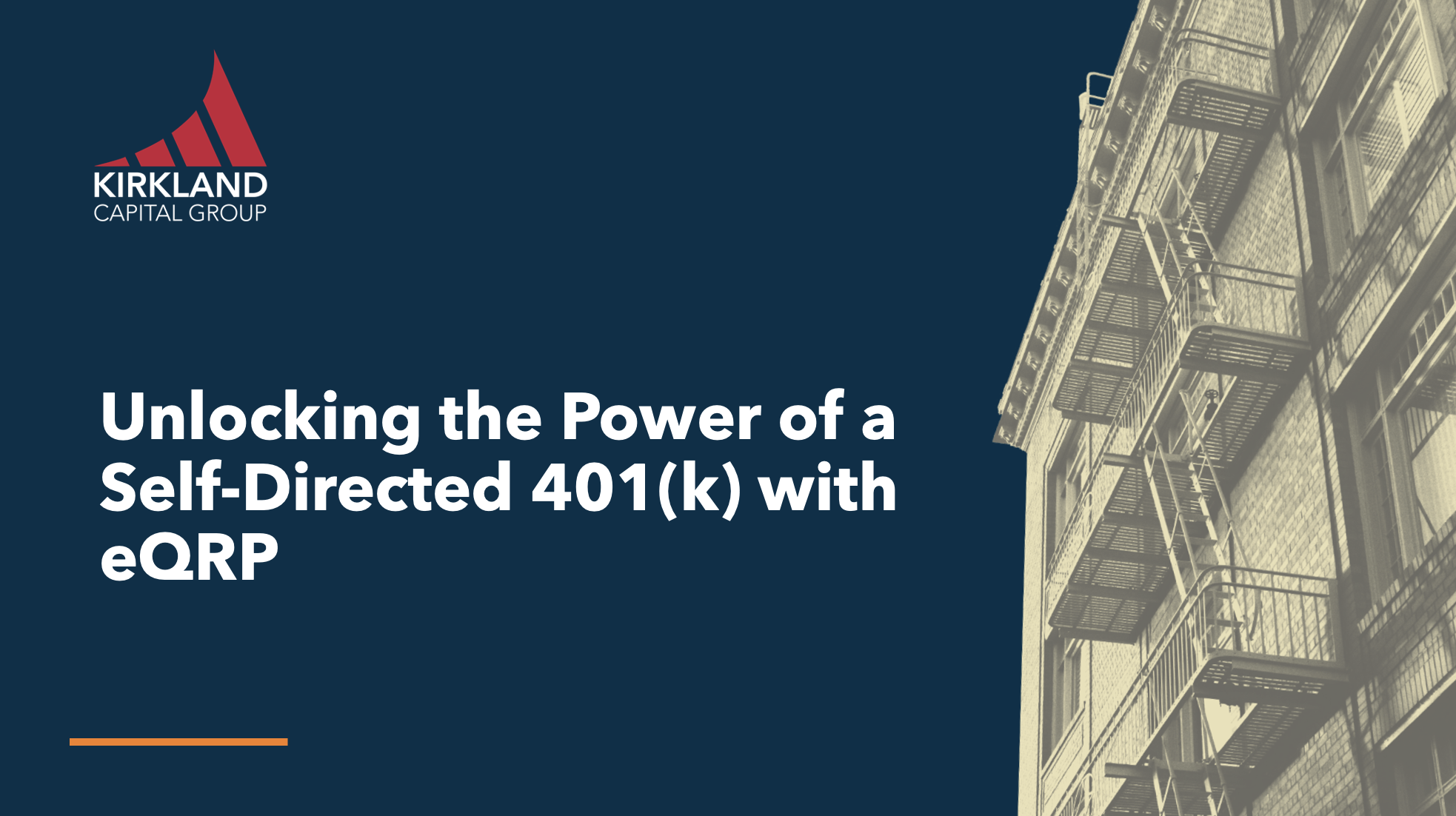
Unlocking the Power of a Self-Directed 401(k)
As an investor, you’re likely always on the lookout for innovative ways to grow and protect your wealth. However, there’s one powerful tool that remains relatively underutilized—the self-directed 401(k). In a recent interview with Matthew Brauer from eQRP, we explored the many advantages of utilizing this retirement vehicle for those looking to take greater control of their retirement funds.
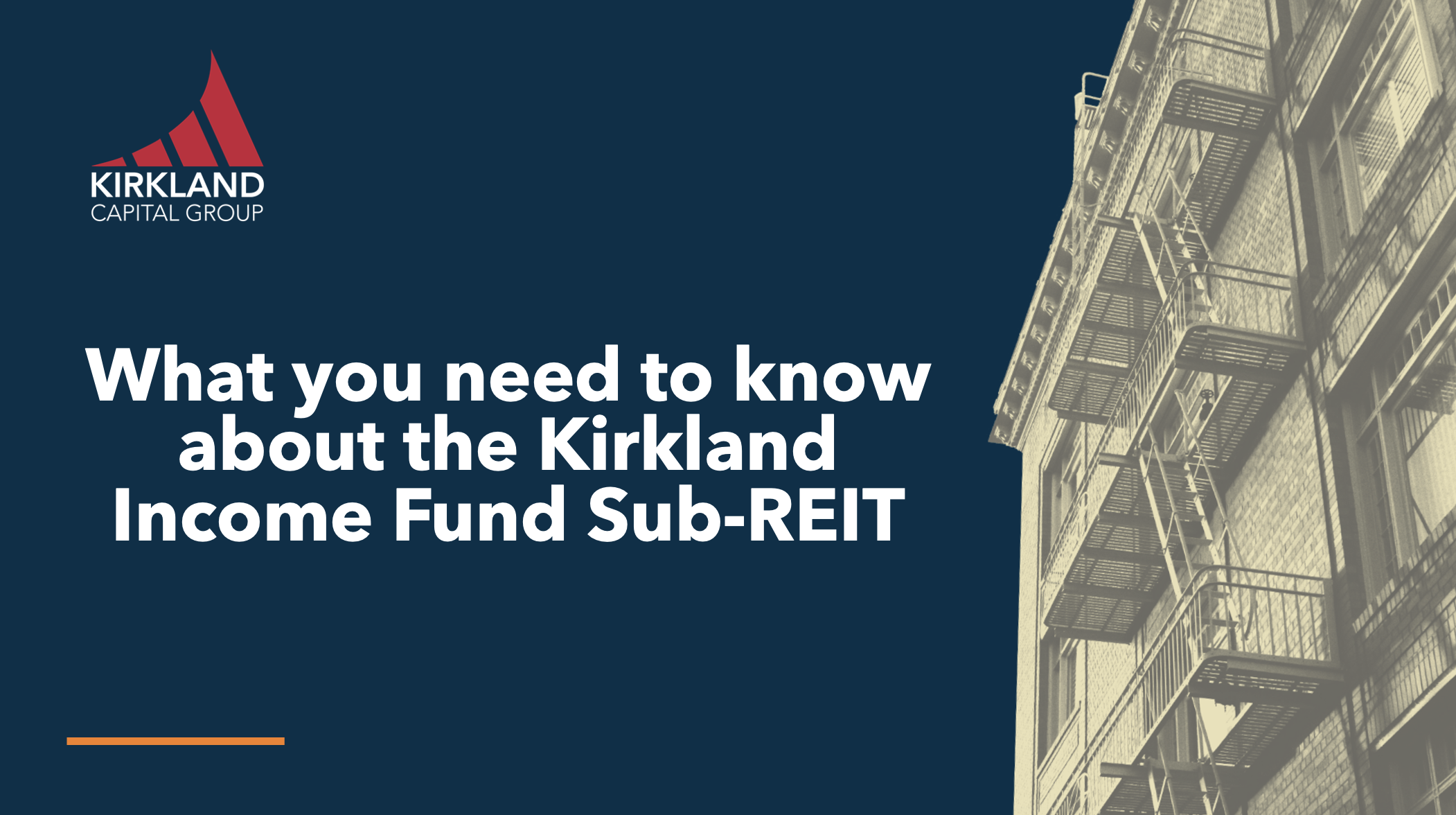
Understanding the Advantages of the Kirkland Income Fund Sub-REIT
At Kirkland Capital Group, our foundational ethos is centered around being investor focused. This principle guided us in constructing our fund to prioritize our investors' best interests, ensuring that our fees, expenses, compliance, and operations are all in alignment with their needs. Consequently, we have adopted a Sub-REIT structure as part of our strategy to maximize returns and provide tax benefits to our qualified investors.
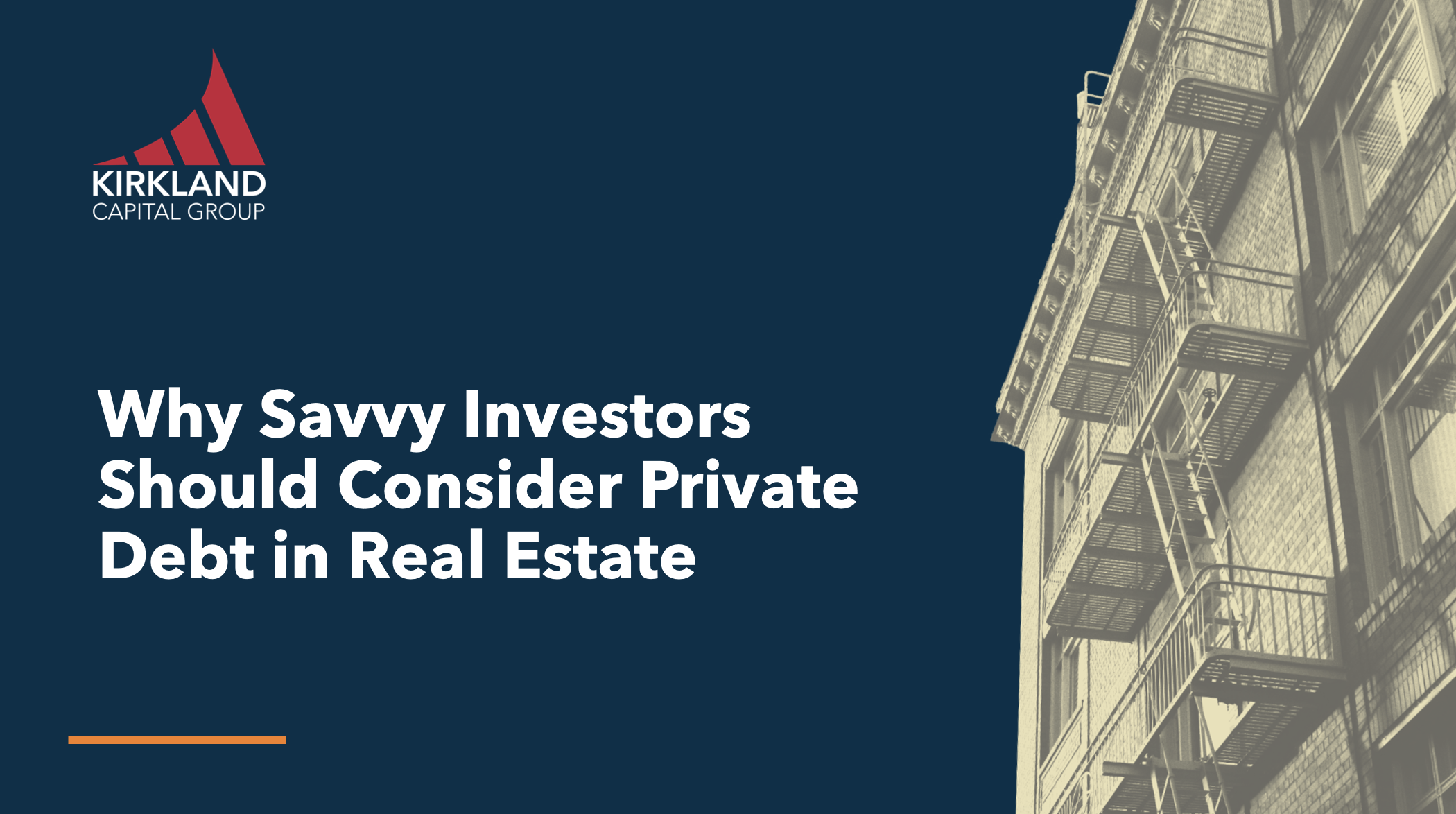
Why Savvy Investors Should Consider Private Debt in Real Estate
In an investment landscape that often feels like a tug-of-war between risk and reward, private debt in real estate offers a unique opportunity for investors to achieve stability and high returns. For those looking to diversify beyond traditional equities and bonds, private debt in real estate provides an intriguing opportunity. This was the focus of Chris and Brock's discussion as they guested on the eQRP podcast, hosted by Matthew Brauer, a platform that offers a self-directed retirement plan allowing individuals to invest in a wide range of assets.
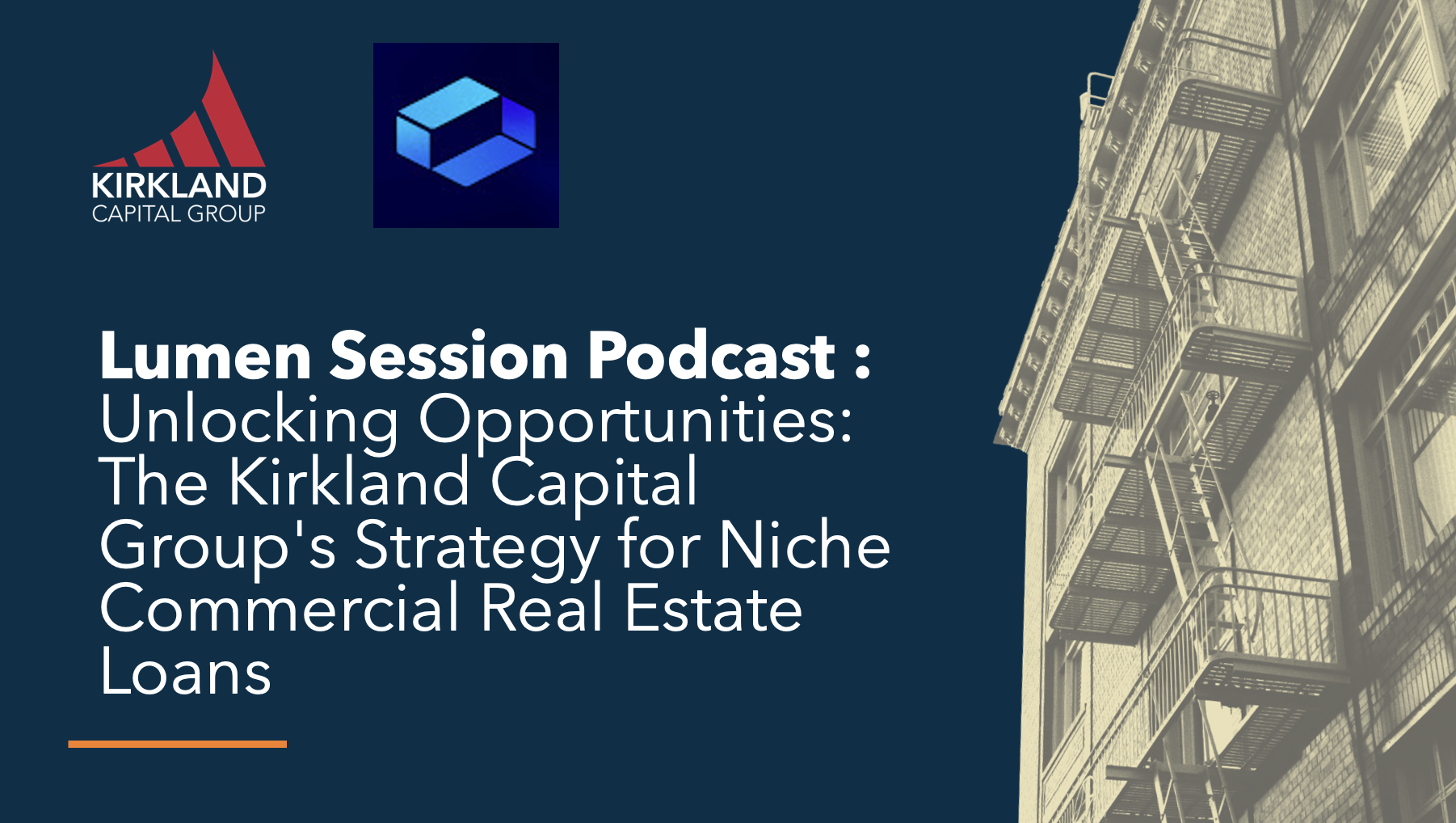
Unlocking Opportunities: The Kirkland Capital Group's Strategy for Niche Commercial Real Estate Loans
Join our founders, Chris Carlsey and Brock Freeman, as they discuss KCG's investment strategies, risk management techniques, and the importance of transparency with investors. This is perfect for anyone interested in real estate and private debt funds.
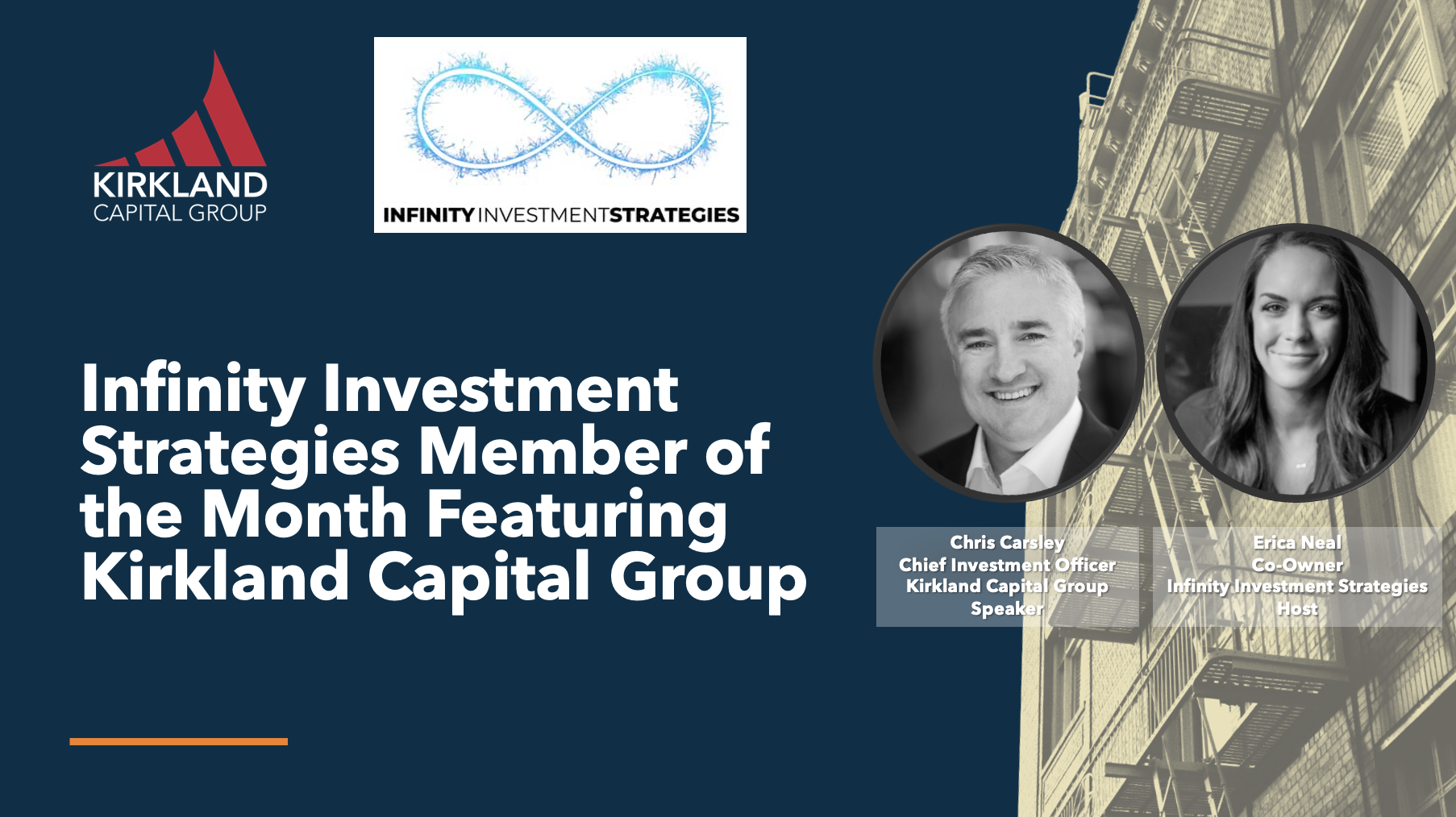
Infinity Investment Strategies Member of the Month Featuring Kirkland Capital Group
At Kirkland Capital Group, we are proud to share that our very own Chris Carsley was recently featured on the Infinity Investment Strategies podcast, hosted by Erica Neal. With a distinguished career in hedge funds, portfolio management, and alternative investments, Chris shared his unique insights and expertise on various topics, including the evolving landscape of private debt and fixed income investments.
He also talks in depth about our fund, the Kirkland Income Fund. This is a great video to watch for current and potential investors in the fund as Erica asks insightful questions that maybe on the mind of many investors.
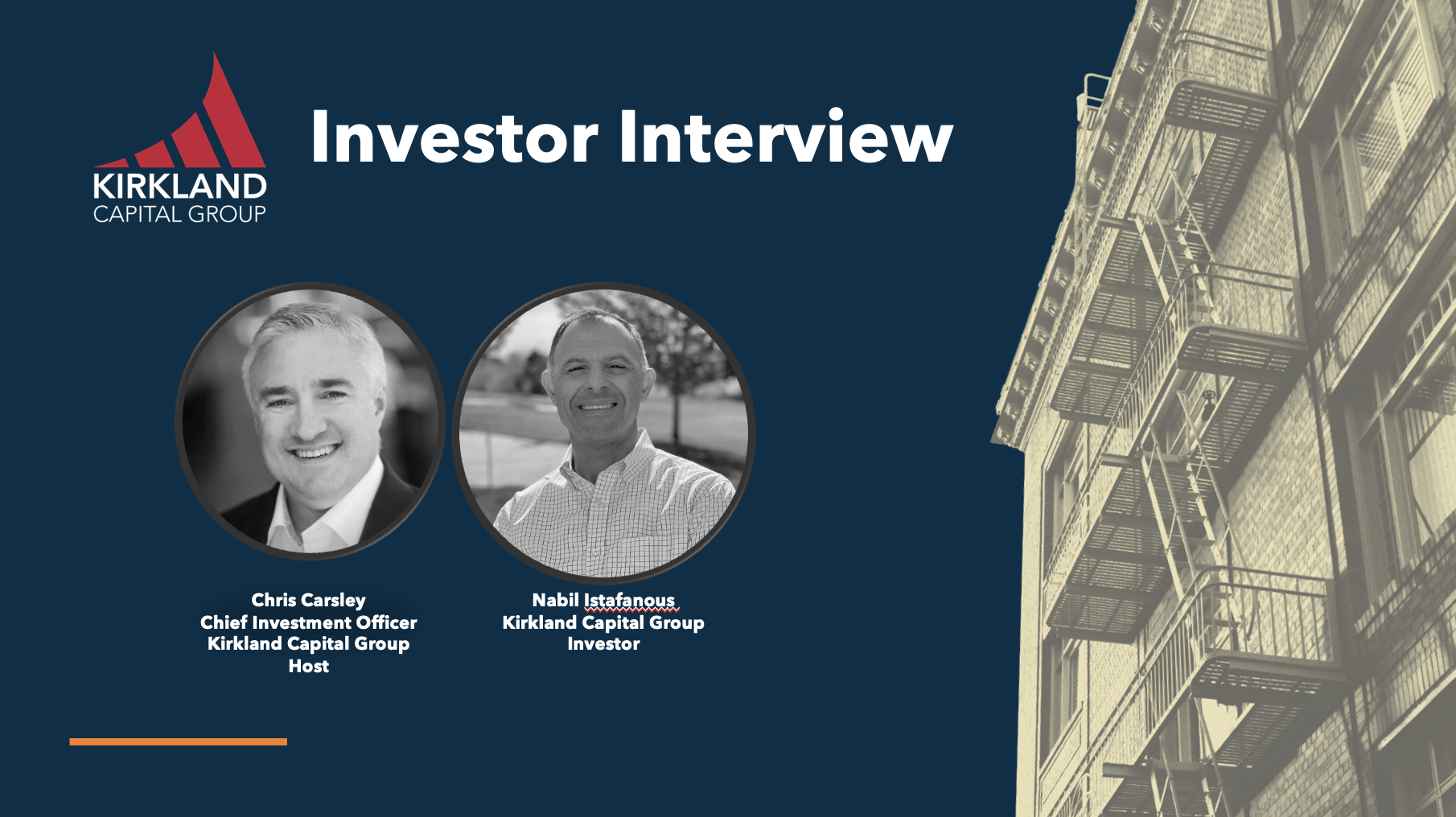
From Pre-Med to Private Debt: An Investor Interview with Nabil Istafanous
Do you want to hear from a successful investor who has a diversified portfolio of non-correlated assets? Do you want to get some valuable advice from a seasoned entrepreneur who has a unique and unconventional career path? Do you want to learn more about alternative lending and private debt? If you answered yes to any of these questions, then you will love our latest investor interview with Nabil Istafanous.

What Sets Kirkland Capital Group Apart?
Kirkland Capital Group (KCG) is an investment fund manager combining 75+ years of investment management, real estate, and technology experience to Build and Fortify Your Wealth. Our principal preservation focused income fund generates passive high-yield income, delivering over 11% compounded net return for 2022 and 2023. Investors feel happy they capture strong returns, and are doing good, as the Fund’s micro-balance real estate loans are used to rehabilitate middle-income affordable housing and neighborhoods, making a positive social and environmental impact.
But how does KCG distinguish itself from the other income funds in the market?

Equity-like Returns with Debt-Level Risk: Dream or Reality?
Equities, or stocks, have always held a strong appeal for investors and have been a fundamental component of numerous investment portfolios for valid reasons. Historically, the S&P 500 (including dividends) have yielded an impressive average return of 12.8% from 1950 to 2023. Nevertheless, this trajectory has been anything but steady, characterized by significant events such as Black Monday (which saw the Dow plummet by -22%), the Internet Bubble Crash (resulting in a -78% loss for NASDAQ), and the Great Financial Crisis (where the S&P 500 experienced a decline exceeding -20%).
For those who prefer a more conservative investment strategy, bonds present an opportunity for stability, capital preservation, and offering a consistent flow of interest payments. From 1950-2023, the 10-year treasury bond has maintained an average yield of 5.4%, providing a “calmer” investment option compared to stocks, albeit with returns around 40% lower and without the highs and lows associated with the stock market. However this doesn’t mean there hasn’t been any fluctuations in its returns.
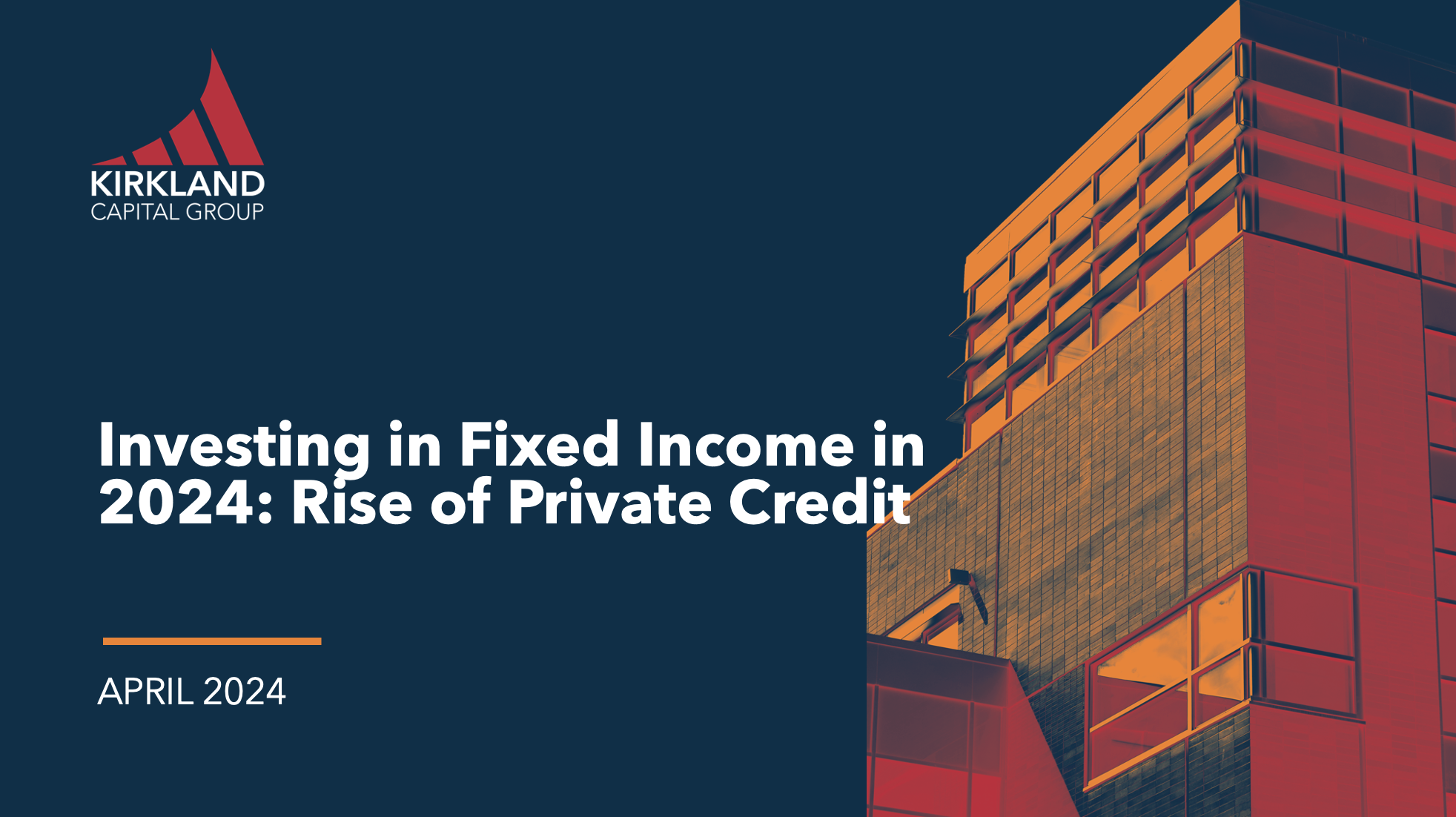
Rise of Private Private Credit
Traditional fixed income has faced challenges over the past few years, while equities or stocks have thrived in contrast. This shift has paved the way for the rise in popularity of alternative investments such as private credit, as investors seek to strengthen the fixed income segment of their portfolios.
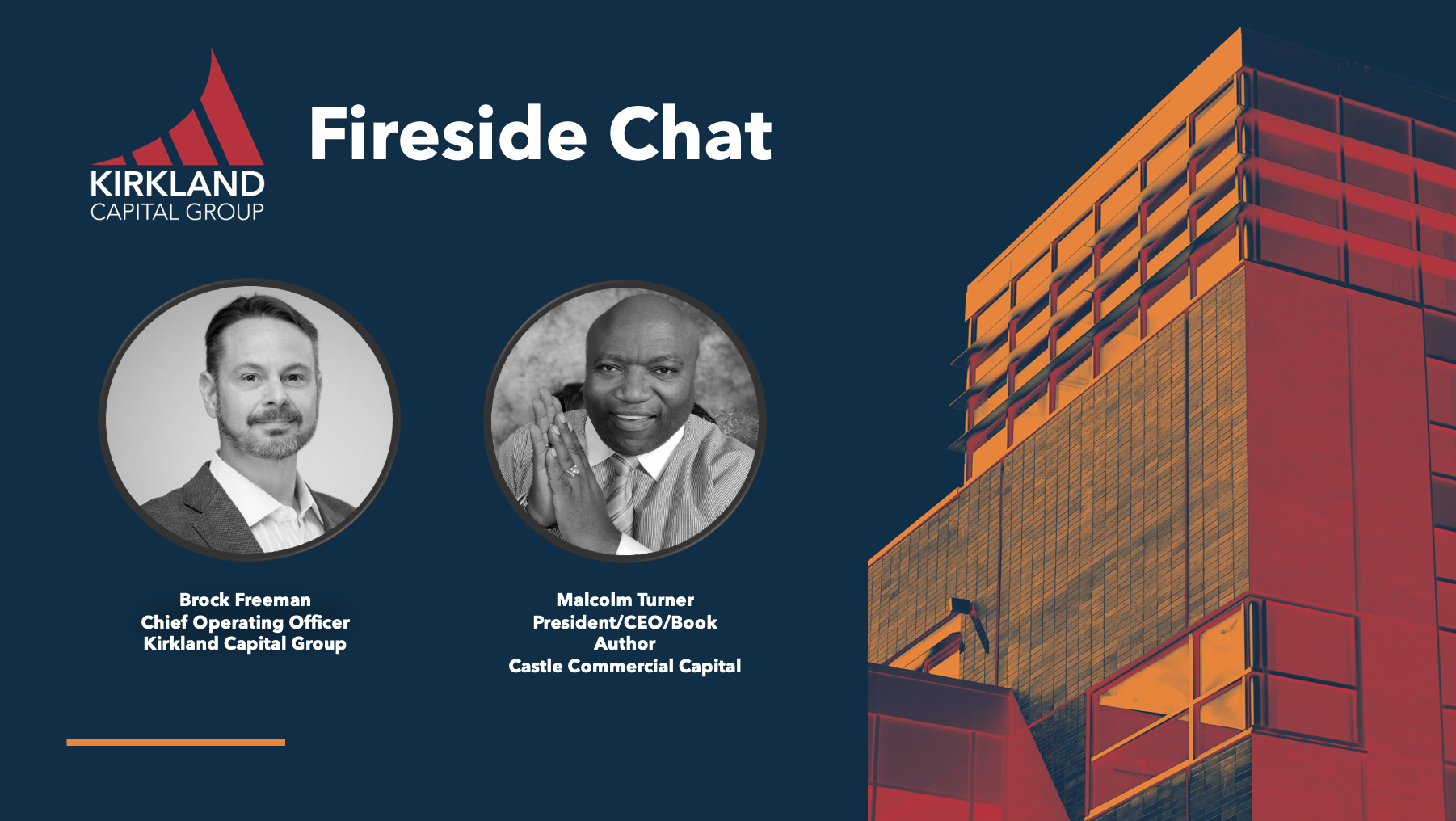
The Unbankable Deal: A Conversation with Malcolm Turner
I recently had the privilege of interviewing Malcolm Turner, the CEO and President of Castle Commercial Capital. He is a pillar in Detroit and has done numerous deals with us at Kirkland Capital Group. He is also an author of the book, Financing the Unbankable Deal: How to Buy Commercial Real Estate with the Bridge Loan Investor Success Strategy. In this fireside chat, we talk about his background, how he started his company, why a lot of investors are looking at Detroit, what are the trends he is seeing in real estate, his strategies when looking at real estate, and a lot more. You wouldn’t want to miss this video!
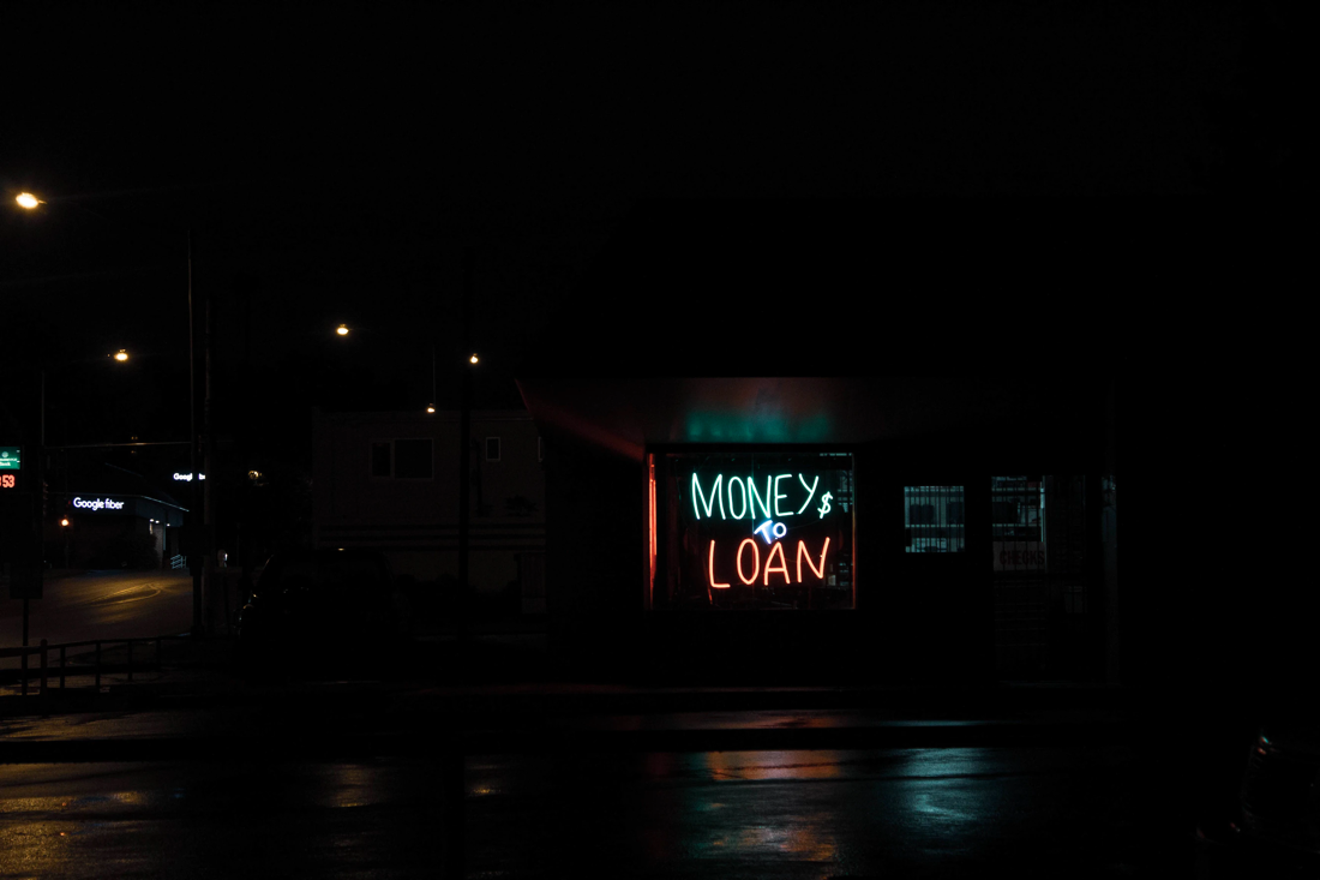
Private Credit: Unlocking Profitable Investment Opportunities
Private credit, a form of credit extended by asset managers to corporate and individual borrowers, has emerged as a high-performing alternative investment in recent years. Preqin estimates that the private credit market has grown from $250 billion in 2010 to $1.4 trillion in 2023. J.P. Morgan recently published an article entitled, “Can Private Credit Continue to Perform?”. It's worth taking a closer look at the key points in this article and see how they connect with our strategy at Kirkland Capital Group (KCG).
